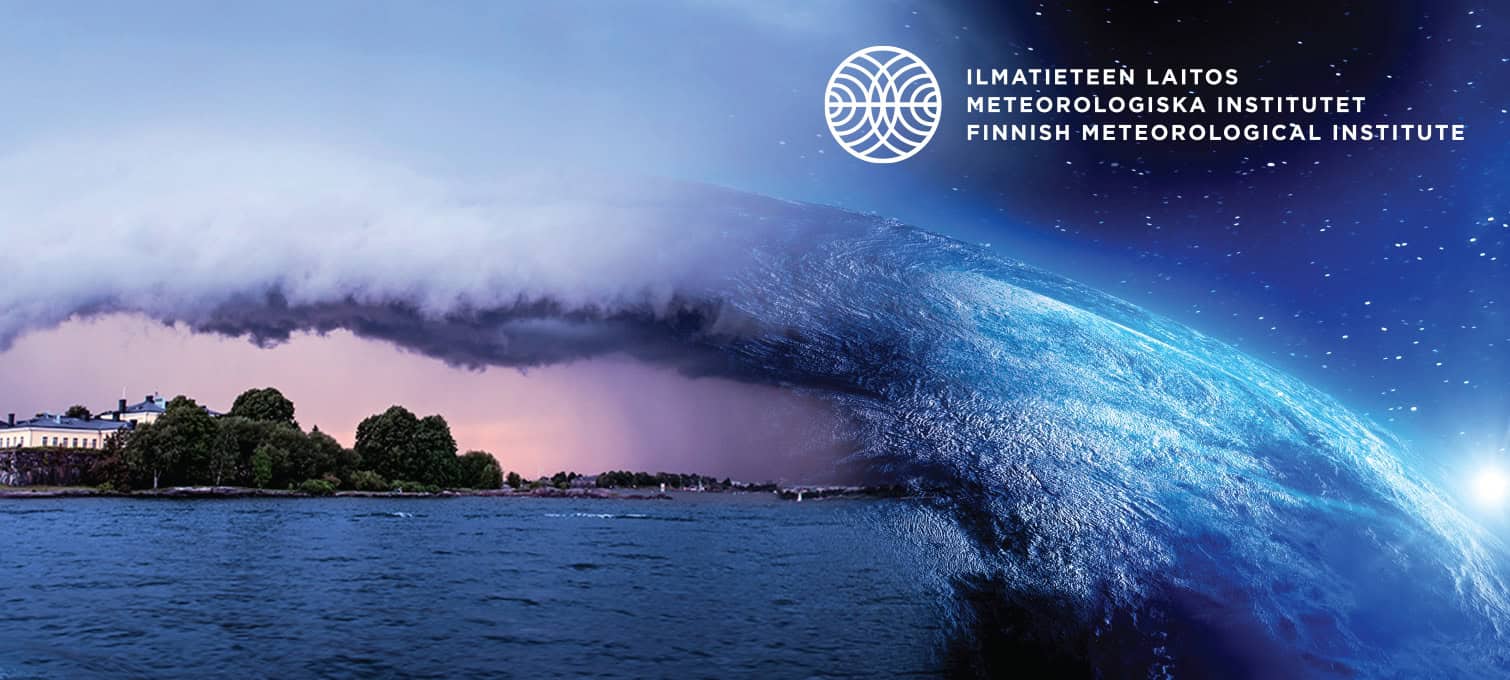20.11.2024 Finnish Meteorological Institute

Dear Colleagues,
We are pleased to invite you to National Modelling Seminar 2024, which this year combines the annual seminar series on hydrological and climate modelling. Our seminar aims to bring together experts to discuss the latest advances and challenges in these interconnected fields. The seminar is organised by the Hydrology division of Water Association Finland, universities, and research institutes. Topics include
- water resources, resilience and restoration
- water cycle in climate, drainage basins and land ecosystems
- climate change impacts on the water cycle
- extreme events
- hydrological, climate and ecosystem modelling
- water cycle interconnections with vegetation greenhouse gas fluxes, soil carbon, nutrients and various chemical compounds relevant to environmental sustainability and protection
This seminar will provide opportunities to present your recent work and gain valuable insights and foster collaborations. Your participation would be greatly appreciated and contribute to the success of this event. We look forward to welcoming you to this exciting seminar.
Time: Wed 20.11.2024, 09:00–17:00
Venue: Finnish Meteorological Institute (www.fmi.fi), Dynamicum building, Brainstorm auditorium (Entrance: Floor -1 where Café Arktis is located), Erik Palmenin aukio 1, 00560 Helsinki
The seminar is sponsored by Water Association Finland and Finnish Meteorological Institute, including lunch. We will have an informal seminar dinner for participants (at own cost, time and location to be announced later).
PROGRAMME
09:00–09:15 Welcome, T. Aalto, R. Makkonen
09:15–09:45 Modelling the effects of forest use change on brownification of Finnish rivers under atmospheric pressure. K. Rankinen
09:45–10:00 Climate variability can outweigh the influence of climate mean changes for extreme precipitation under global warming, K. Nordling
10:00–10:15 Future snow scenarios for Northern Europe based on CMIP6 data, P. Räisänen
10:15–10:30 Spring melting season and its methane emissions in the northern high latitude wetlands based on the SMOS Freeze/Thaw soil state data, S. Hyvärinen
10:30–10:50 Coffee break and posters
10:50–11:05 Characteristics of marine heatwaves in the Gulf of Bothnia from historical measurements to future projections, V. Haapaniemi
11:05–11:20 Modelling climate change impacts on lake ice and snow to demonstrate breeding habitat decline of the endangered Saimaa ringed seal, J. Jakkila
11:20–11:35 The Effect of Snow Parametrization in JSBACH-HIMMELI Land Surface Model Simulations –Evaluation of Results Against Crocus Snowpack Model Simulations and Observations on a Northern Wetland, S. Orttenvuori
11:35–11:50 Examining the propagation effect of cascading regulation in snowfed run-of-river basins, C. K. Nakigudde
11:50–12:05 From Barriers to Rapids: River Dynamics and Mesohabitat Evolution at Hiitolanjoki River, K. Schlobies
12:05–12:15 Highlights and outcomes of Finnish Freshwater Research – Shifting towards Digital Waters, A. Pekkarinen
12:15–13:00 Lunch break and posters
13:00–13:15 An Online Laboratory for Exploring Lossy Climate Model Data Compression, J. Tyree
13:15–13:30 Accelerating reactive transport modeling using a physics- and chemistry-informed neural network, H. Qiao
13:30–13:45 Groundwater recharge with treated wastewater for irrigation and contaminant attenuation, D. Tang
13.45–14.00 Evaluating pedotransfer functions: more comprehensive, accessible, and practical information on the hydraulic properties of Finnish agricultural soils, V. Jokinen
14.00–14.15 Simulating carbon and water balances and their drought response in Finnish agriculture fields using crop hydraulic traits, H. Tang
14:15–14:35 Coffee break and posters
14:35–14:50 Modelling biogenic CO2, heat and, temperature spatially in the city of Zürich, A. Karvonen
14:50–15:05 Nature-Based Solutions Suitability Assessment: A Catchment-Scale Modelling Approach, J. Bhattacharjee
15:05–15:20 Tuning the catchment flowpaths: sensitivity insights for enhanced hydrological calibration powered by stable water isotopes, O. Nimr
15:20–15:35 Exploring the hydrological influence on carbon exchange in northern peatlands – Pallaslompolo case study, A. Autio
15:35–15:50 Greenhouse gas fluxes from the littoral zones of north-boreal lakes, J. Chapman
15:50–16:00 Break
16:00–16:15 Ditches overgrown by mosses mitigate methane emission from drained peatland forests, T. Larmola
16:15–16:30 Modelling the effects of peatland rewetting on hydrology, growth, and carbon balance in the adjacent drained peatland forest, L. Stenberg
16:30–16:45 Simulating soil CH4 and CO2 fluxes of managed peatland forests with JSBACH-HIMMELI -model. E. Ekman
16:45–17:00 Simulating greenhouse gas fluxes of various habitats within restored peatlands in Northern latitudes using JSBACH-HIMMELI, K. Isomäki
17:00–17:15 The effect of extreme weather on peatland GHG exchange in past and future climate using JSBACH-HIMMELI ecosystem model, V. Tuominen
17:15–17:20 Wrap-up
POSTERS
Simulating the impact of hysteresis in air-filled peat porosity on peatland CH4 emission patterns, M. Raivonen
Carbon accumulation rates and organic matter sources in low-productive North-boreal lakes, S. Juutinen
EU – WETHORIZONS: Upgrading knowledge and solutions to fast-track wetland restoration across Europe, S. Juutinen
EU- ALFAWETLANDS: Wetland Restoration for the Future, T. Larmola
EU – LIFE Peat Carbon: Peatland restoration for climate change mitigation, T. Aalto
SA-WINMET: The role of snowpack and soil freezing in controlling winter season wetland methane emissions, T. Aalto
Contact: Tuula Aalto (tuula.aalto@fmi.fi) & Risto Makkonen (risto.makkonen@fmi.fi)
Best regards,
Tuula Aalto, Principal Scientist
Carbon Cycle Research Group, Finnish Meteorological Institute
tel. +358 50 555 0006